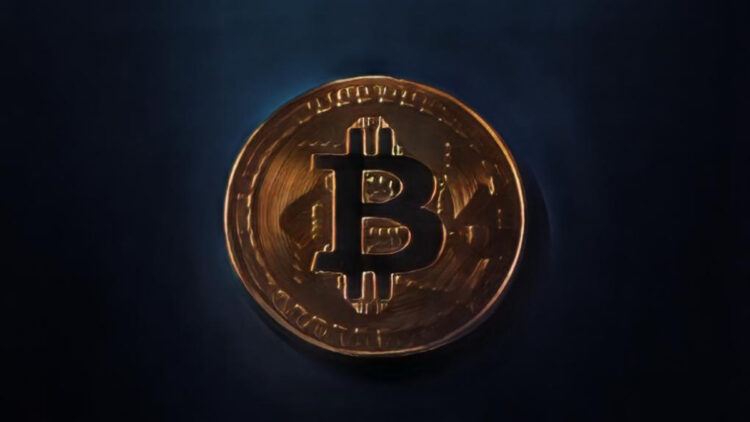WST News – Bitcoin, the trailblazer of cryptocurrencies, made its debut in 2009 through the mysterious figure Satoshi Nakamoto. Unlike traditional financial systems and government-regulated currencies, Bitcoin offers an independent, decentralized way of exchanging value and investing. In this article, we will delve into one of the most frequently asked questions in the cryptocurrency world: What is Bitcoin? Let’s explore.

Understanding Bitcoin
Before diving into the technical details, it’s important to grasp the basic concept of Bitcoin.
So, what is Bitcoin? In essence, Bitcoin is a decentralized digital currency operating on a peer-to-peer network, allowing for secure, borderless transactions without intermediaries like banks or governments. Introduced in 2009 by an unknown personality under the pseudonym Satoshi Nakamoto, Bitcoin was detailed in a whitepaper outlining its principles and mechanisms.
At its core, Bitcoin relies on blockchain technology, a public ledger recording all transactions. Transactions are authenticated by network participants known as miners, who use powerful computers to solve compound mathematical puzzles. Once authenticated, transactions are grouped into blocks and added to the blockchain, creating a transparent and immutable record.
Key Aspects of Bitcoin
Security
The Bitcoin blockchain is a pass around ledger system that records and secures all transactions. Each transaction is stored in blocks, linked in chronological order, ensuring transparency, immutability, and resistance to tampering.
Mining
Bitcoin mining involves validating transactions and creating new blocks using specialized hardware known as Application Specific Integrated Circuits (ASICs). Miners compete to solve cryptographic puzzles, with successful miners earning newly minted bitcoins.
Halving
Approximately every four years, Bitcoin undergoes a halving event, reducing the mining reward by half. This built-in scarcity mechanism controls inflation and ensures a finite supply, capped at 21 million bitcoins.
Bitcoin Keys and Wallets
Bitcoin ownership is managed through cryptographic keys stored in digital wallets. Public keys identify recipients, while private keys grant access to funds. Wallets come in custodial and non-custodial forms, each offering different levels of control and security.
Bitcoin Transactions: From Sender to Receiver
Bitcoin transactions involve transferring ownership from one address to another. These transactions are validated and added to the blockchain, involving transaction fees and miner confirmations.
Bitcoin Security: Safeguarding Your Assets
Although the Bitcoin blockchain has never been compromised, securing private keys is crucial to preventing unauthorized access and potential loss. Cold storage methods, such as offline storage, provide enhanced security against cyber threats.
Risks and Rewards of Investing in Bitcoin
Bitcoin’s unpredictability presents both opportunities and risks for investors. While some see it as a long-term store of value or hedge against inflation, others engage in speculative trading to capitalize on price fluctuations.
Converting Bitcoin into Cash
Bitcoin can be converted into fiat currency through various cryptocurrency exchanges, facilitating buying, selling, and trading bitcoins for traditional currencies.
Bitcoin: Real or Not?
Bitcoin fulfills many traditional money criteria, serving as a way of exchange, store of value, and unit of account. Its widespread acceptance for goods and services solidifies its status as a currency.
Investing in Bitcoin: Considerations and Cautions
While investing in Bitcoin is increasingly popular, it is vital to understand the inherent risks, volatility, and lack of regulatory oversight associated with the cryptocurrency market.
Choosing the Best Bitcoin Platform
With Bitcoin’s growing popularity, numerous platforms facilitate buying, selling, trading, and storing bitcoins. Selecting the right platform is crucial for a smooth and secure experience. Consider these factors:
Security: Ensure robust security measures like two-factor authentication (2FA), cold storage, and encryption.
User Experience: A user-friendly interface and comprehensive educational resources are essential, especially for beginners.
Fees: Compare transaction and trading fees across platforms for competitive rates.
Liquidity: High liquidity ensures swift trade execution and competitive pricing.
Regulation and Compliance: Platforms adhering to regulatory standards offer greater transparency and accountability.
Customer Support: Reliable customer support is invaluable for addressing concerns.
Additional Features: Consider features like margin trading, staking, or lending.
Best Bitcoin Platforms in 2024
Coinbase: famous for its user-friendly interface and strong security features.
Binance: One of the largest exchanges, offering a plethora of trading pairs and advanced features.
Kraken: Renowned for robust security measures and high liquidity, offering various trading options.
Ultimately, the best Bitcoin platform depends on individual needs, preferences, and experience levels. Research and compare platforms to find the best fit.
Conclusion
Bitcoin continues to redefine finance, offering unprecedented control over financial assets. Whether seen as a disruptive force or groundbreaking innovation, Bitcoin’s influence extends far beyond digital currency, shaping the future of global finance.
We hope that this article answers your question, ”What is Bitcoin?” Happy investing!
Frequently Asked Questions (FAQ) about Bitcoin
What is Bitcoin?
Bitcoin is a digital currency created in 2009 by an unknown entity using the pseudonym Satoshi Nakamoto. It operates on a decentralized network called blockchain, enabling peer-to-peer transactions without intermediaries.
How does Bitcoin work?
Bitcoin transactions are recorded on a public ledger known as the blockchain. Participants use cryptographic keys to send and receive bitcoins securely. Miners verify transactions and add them to blocks, forming the blockchain.
Is Bitcoin legal?
The legality of Bitcoin varies by country. Some nations accept it as a legitimate payment form, while others impose restrictions or bans. Check local regulations before engaging in Bitcoin-related activities.
How do I buy Bitcoin?
Bitcoin can be purchased on cryptocurrency exchanges like Coinbase, Binance, and Kraken using fiat currency or other cryptocurrencies. It can also be bought through peer-to-peer platforms or Bitcoin ATMs.
What is Bitcoin mining?
Bitcoin mining involves verifying transactions and adding them to the blockchain. Miners use high-powered computers to solve mathematical puzzles, earning newly minted bitcoins as a reward.
Can I lose money with Bitcoin?
Yes, investing in Bitcoin carries risks, including price volatility, regulatory uncertainty, and security vulnerabilities. Research thoroughly, and invest only what you can afford to lose.
Can Bitcoin be hacked?
While the Bitcoin blockchain itself has never been hacked, individual wallets and exchanges can be vulnerable. Secure storage practices, like using hardware wallets, can mitigate the risk.
What is a Bitcoin wallet?
A Bitcoin wallet is a digital tool for storing, sending, and receiving Bitcoin. It consists of a public key (receiving address) and a private key (accessing funds).
Is Bitcoin anonymous?
Bitcoin transactions are pseudonymous and recorded on a public ledger that can be analyzed. With the right tools, it may be possible to trace transactions back to their originators.
Where can I learn more about Bitcoin?
Numerous online resources, including educational websites, forums, books, podcasts, and documentaries, offer insights into Bitcoin’s history, technology, and economics.
read more: Exploring How Bitcoin Mining Works: An In-Depth Look at the Digital Gold Rush




















